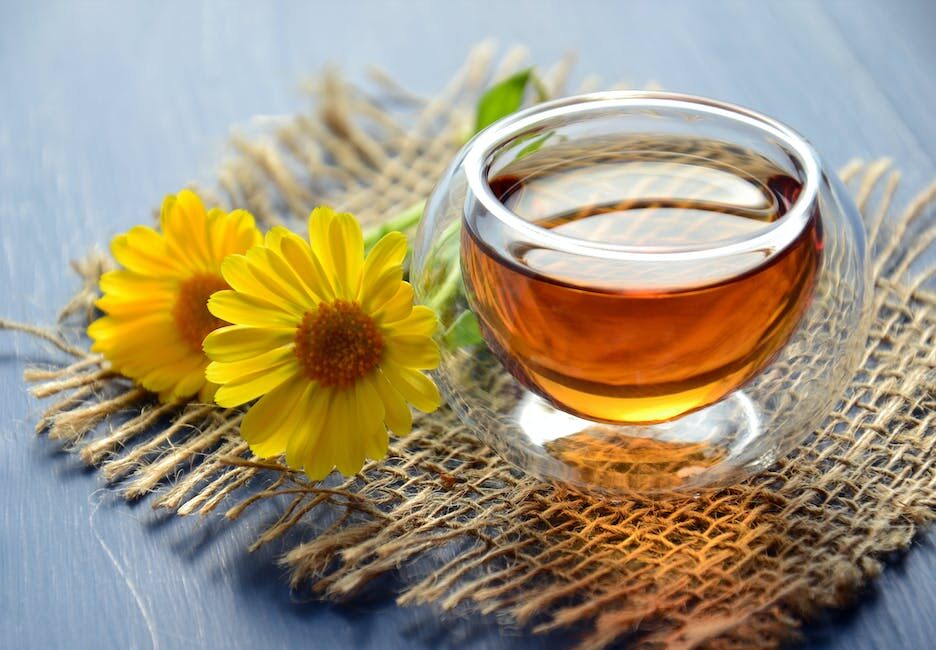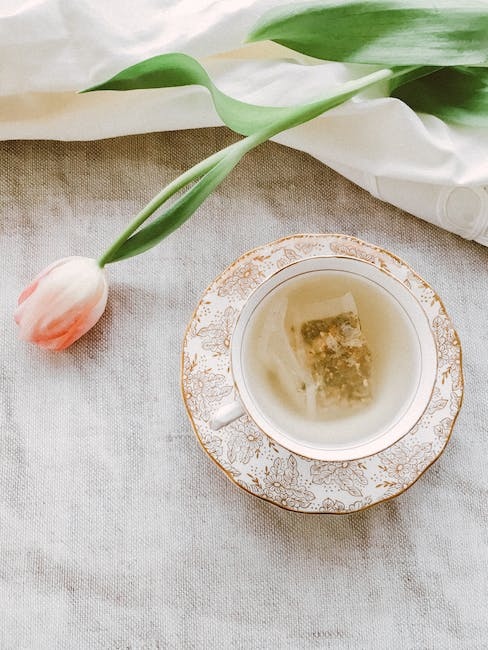Introduction to Herbal Tea and Liver Damage
Herbal tea has been enjoyed for centuries due to its natural and therapeutic properties. It is often considered a healthier alternative to traditional tea and is known for its various health benefits. However, it is essential to be aware that not all herbal teas are harmless and can potentially cause liver damage.
In recent years, there have been increasing concerns about the potential risks and adverse effects of certain herbal teas on liver health. While most herbal teas are safe for regular consumption, it is crucial to understand the types of herbal tea that can cause liver damage and be aware of the symptoms, prevention, and treatment options.
This article will provide an overview of herbal tea and its potential links to liver damage. We will explore the different types of herbal tea that can pose a risk to the liver, discuss the symptoms of liver damage caused by herbal tea, and provide guidance on prevention and treatment. Ultimately, this information aims to educate tea enthusiasts and promote safe consumption practices for herbal tea lovers.
Types of Herbal Tea that can Cause Liver Damage
While herbal teas are generally considered safe, there are specific types that have been associated with potential liver damage. It is important to be aware of these teas and exercise caution when consuming them. Here are some types of herbal tea that can pose a risk to liver health:
- Comfrey Tea: Comfrey tea, made from the comfrey plant, contains pyrrolizidine alkaloids. These substances have been linked to liver toxicity when consumed in large amounts or over an extended period. It is advisable to avoid or limit the consumption of comfrey tea.
- Kombucha Tea: Kombucha tea is a fermented drink made from tea, sugar, and a symbiotic culture of bacteria and yeast (SCOBY). While kombucha tea is generally considered safe, improper brewing or contamination during the fermentation process can result in high levels of toxins that can damage the liver.
- Licorice Tea: Licorice tea, derived from the licorice root, contains glycyrrhizin, a compound that can cause liver damage when consumed in excessive amounts. Individuals with existing liver conditions or high blood pressure should exercise caution when drinking licorice tea.
- Ephedra Tea: Ephedra tea, made from the ephedra plant, is known for its stimulating effects. However, it contains ephedrine, a compound that can cause liver damage when consumed in large quantities or over a prolonged period. It is important to be cautious when consuming ephedra tea.
These are just a few examples of herbal teas that can potentially cause liver damage. It is crucial to read labels, research tea ingredients, and consult with a healthcare professional before incorporating any herbal tea into your regular consumption routine. Our next section will discuss the symptoms of liver damage caused by herbal tea, allowing you to recognize potential issues early on.
Symptoms of Liver Damage Caused by Herbal Tea
When it comes to liver damage caused by herbal tea, it is essential to be aware of the potential symptoms. Recognizing these symptoms early on can help you seek medical attention and take appropriate measures to protect your liver health. Here are some common signs of liver damage caused by herbal tea:
- Jaundice: One of the primary signs of liver damage is jaundice, which causes the skin, eyes, and nails to turn yellow. If you notice any yellow discoloration, it is important to seek immediate medical attention.
- Abdominal Pain: Liver damage can cause persistent pain or discomfort in the abdominal area. If you experience unexplained or ongoing abdominal pain, it is crucial to consult a healthcare professional.
- Dark Urine: Changes in urine color, particularly if it becomes dark or tea-colored, can indicate liver damage. If you notice this change, it is best to get it checked by a medical professional.
- Fatigue and Weakness: Liver damage can lead to feelings of extreme tiredness, weakness, and lack of energy. If you experience unexplained fatigue despite adequate rest, it is advisable to discuss this with your healthcare provider.
- Nausea and Vomiting: Liver damage can cause persistent nausea, vomiting, and loss of appetite. If you are experiencing these symptoms along with the consumption of herbal tea, consult a medical professional for further evaluation.
It is important to note that these symptoms can also be caused by other underlying health issues. However, if you experience any of these symptoms after consuming herbal tea, it is crucial to consult a healthcare professional for a proper diagnosis and guidance on treatment.

In the next section, we will discuss the prevention and treatment of liver damage caused by herbal tea, providing you with important measures to protect your liver health.
Prevention and Treatment of Liver Damage Caused by Herbal Tea
While the risk of liver damage caused by herbal tea is relatively low, it is still important to take preventive measures and seek appropriate treatment if needed. Here are some ways to prevent liver damage associated with herbal tea:
- Research and Educate Yourself: Before trying a new herbal tea, research the ingredients and potential risks. Be aware of any specific health conditions or medications that may interact with herbal tea components.
- Moderation is Key: Like with any substance, moderation is crucial. Avoid excessive consumption of herbal tea, especially those known to have a potential risk for liver damage.
- Quality and Source: Ensure you purchase herbal tea from reputable sources to minimize the chances of contamination or unknown additives that may impact liver health.
- Consult a Healthcare Professional: If you have existing liver conditions or concerns about your liver health, consult with a healthcare professional before incorporating herbal tea into your routine. They can provide personalized advice and guidance based on your specific circumstances.
If you suspect that you may have liver damage caused by herbal tea consumption, it is important to seek medical attention for proper diagnosis and treatment. A healthcare professional will evaluate your symptoms, conduct necessary tests, and provide appropriate medical intervention or lifestyle modifications to support liver health.
Remember, prevention is always better than cure. By being proactive and cautious, you can reduce the risk of liver damage and enjoy the benefits of herbal tea in a safe manner.
In conclusion, herbal tea can be a delightful and beneficial beverage, but it is essential to be aware of potential risks, such as liver damage, associated with certain types of herbal tea. Educate yourself on the types of herbal tea that can pose a risk, recognize the symptoms of liver damage, take preventive measures, and seek professional help if needed.
By following these guidelines, you can continue to enjoy herbal tea while prioritizing your liver health. Stay informed, be mindful of your consumption, and savor the goodness of herbal teas responsibly.
Conclusion and Recommendations for Safe Consumption of Herbal Tea
In conclusion, while herbal tea is generally considered safe and offers numerous health benefits, it is important to be aware of the potential risks of liver damage associated with certain types of herbal teas. By understanding the types of herbal teas that can cause liver damage, recognizing the symptoms of liver damage, and taking preventive measures, tea enthusiasts can continue to enjoy herbal tea while prioritizing their liver health.
To ensure safe consumption of herbal tea, here are some key recommendations to keep in mind:
- Choose Safe Herbal Teas: Select herbal teas that are known to be safe and have a low risk of liver damage. Research the ingredients and consult trustworthy sources to determine the safety of a particular herbal tea.
- Limit or Avoid Risky Herbal Teas: Be cautious with herbal teas that are known to have a potential risk for liver damage, such as comfrey tea, kombucha tea brewed with potentially contaminated ingredients, licorice tea consumed in excessive amounts, and ephedra tea.
- Pay Attention to Quality and Source: Purchase herbal tea from reputable brands or trusted sources to ensure the highest quality and minimize the risk of contamination or unknown additives that may harm the liver.
- Moderate Your Consumption: Practice moderation when consuming herbal tea to avoid excessive intake. Enjoy herbal tea as part of a balanced and varied diet.
- Consult with a Healthcare Professional: If you have any concerns about your liver health or are unsure about consuming herbal tea, consult a healthcare professional who can provide guidance based on your individual circumstances.
By following these recommendations and staying informed, tea lovers can enjoy the delightful flavors and health benefits of herbal tea while mitigating the risks associated with liver damage. Remember, your health is paramount, and being mindful of the choices you make can help you savor herbal tea safely.


Leave a Reply